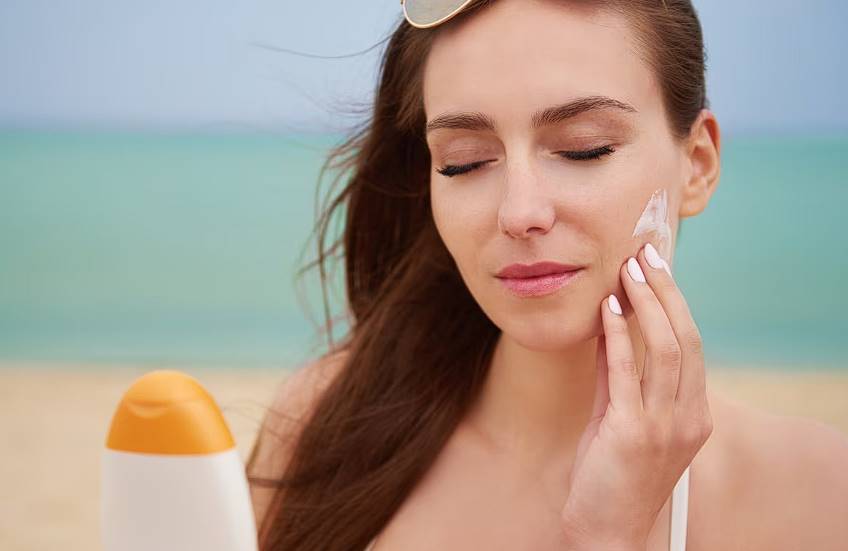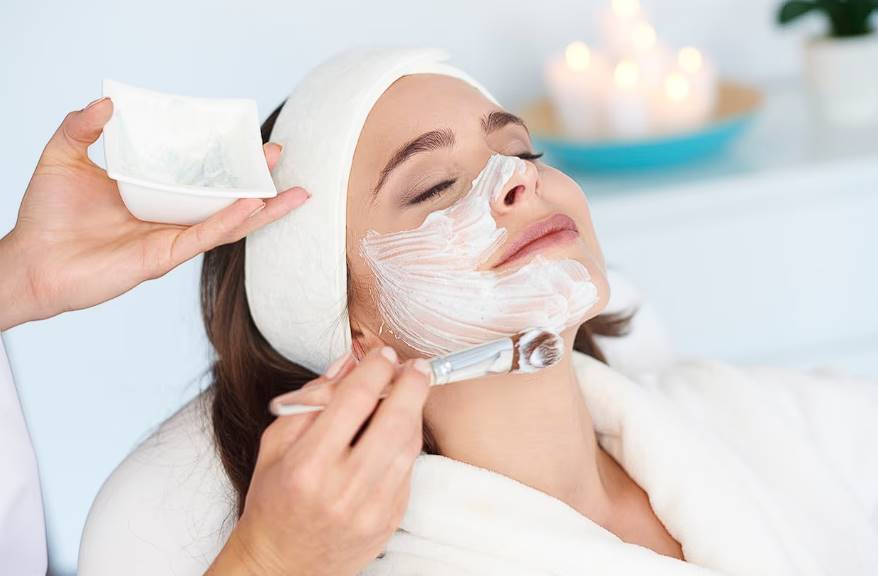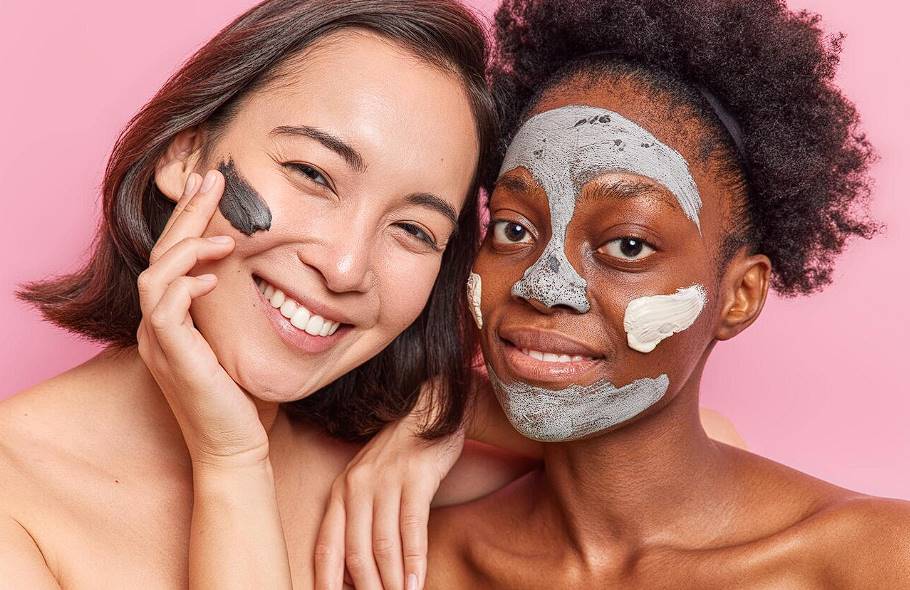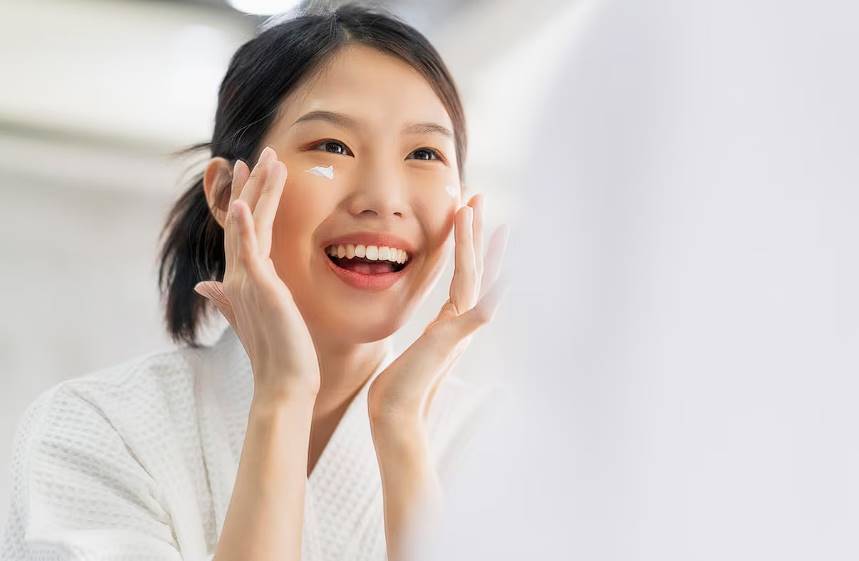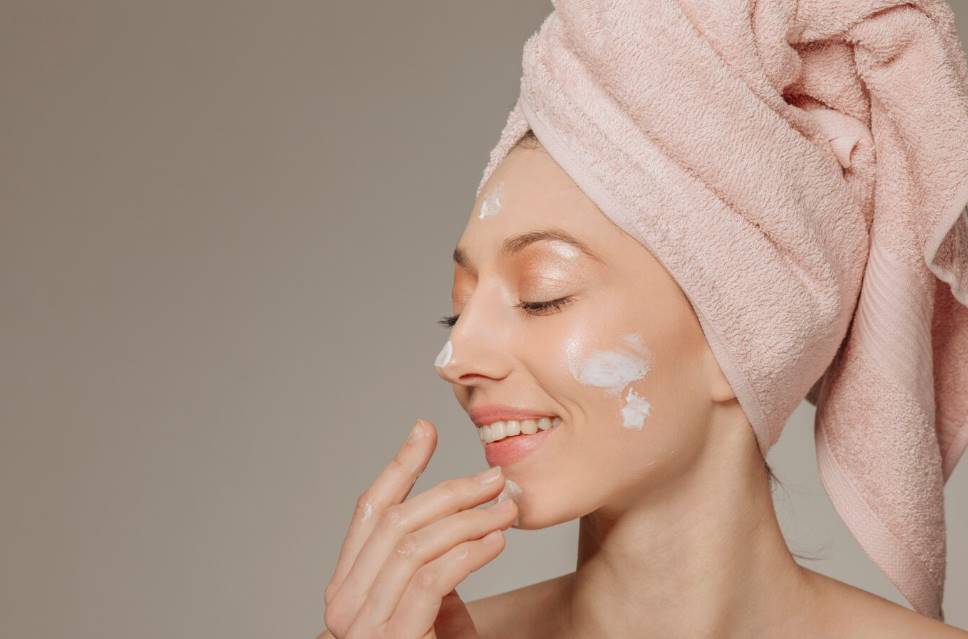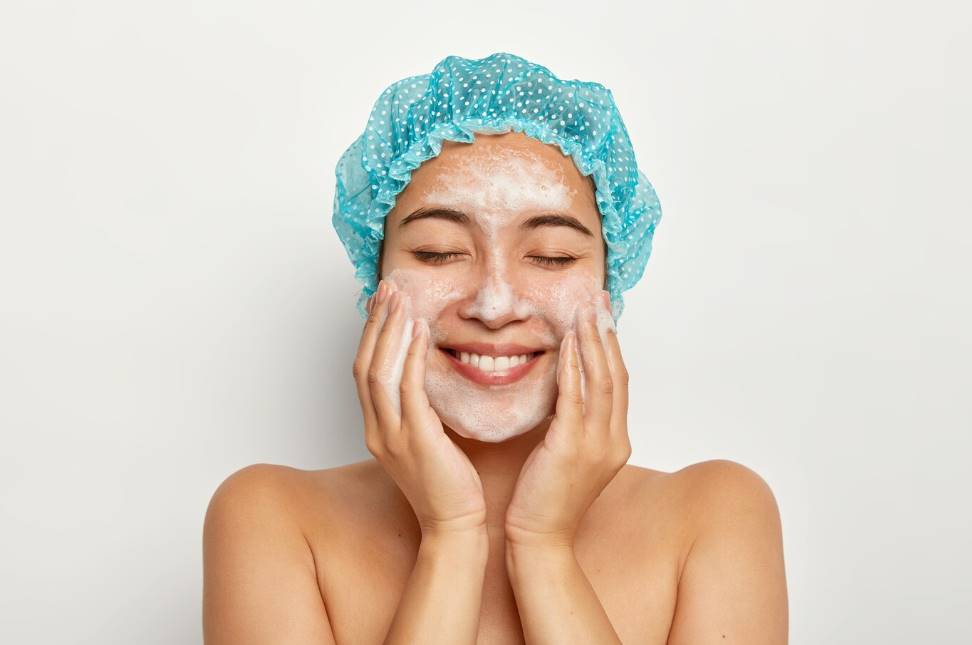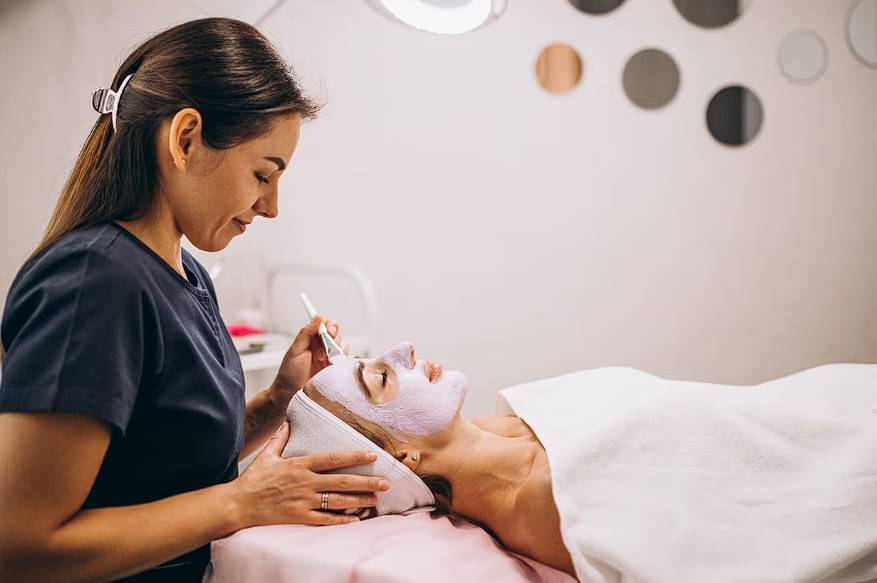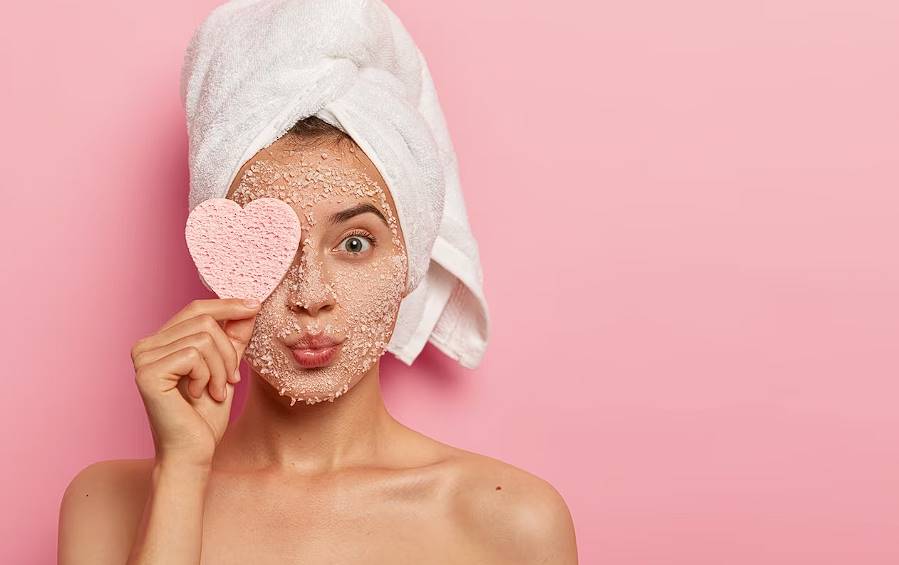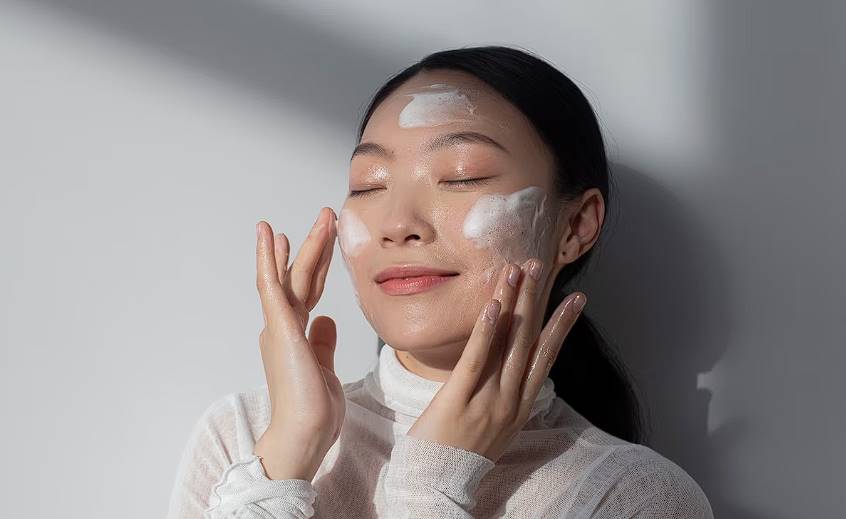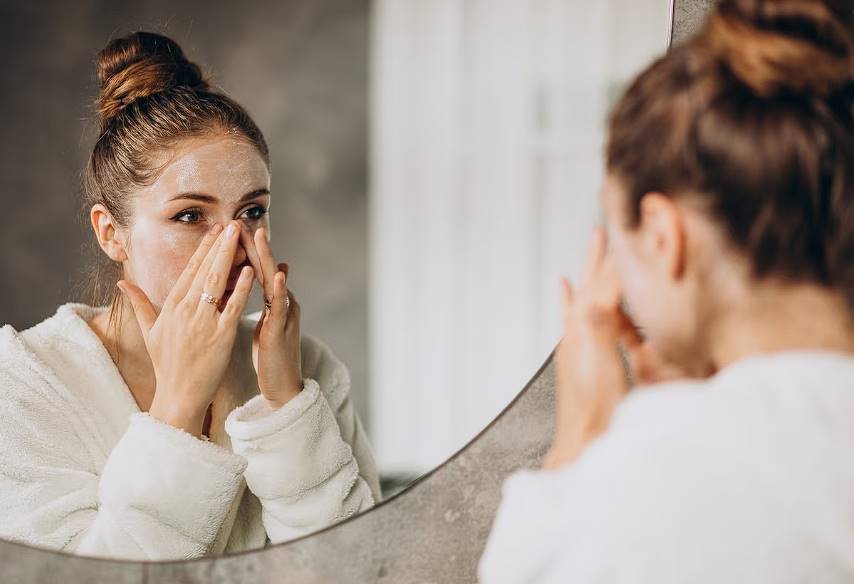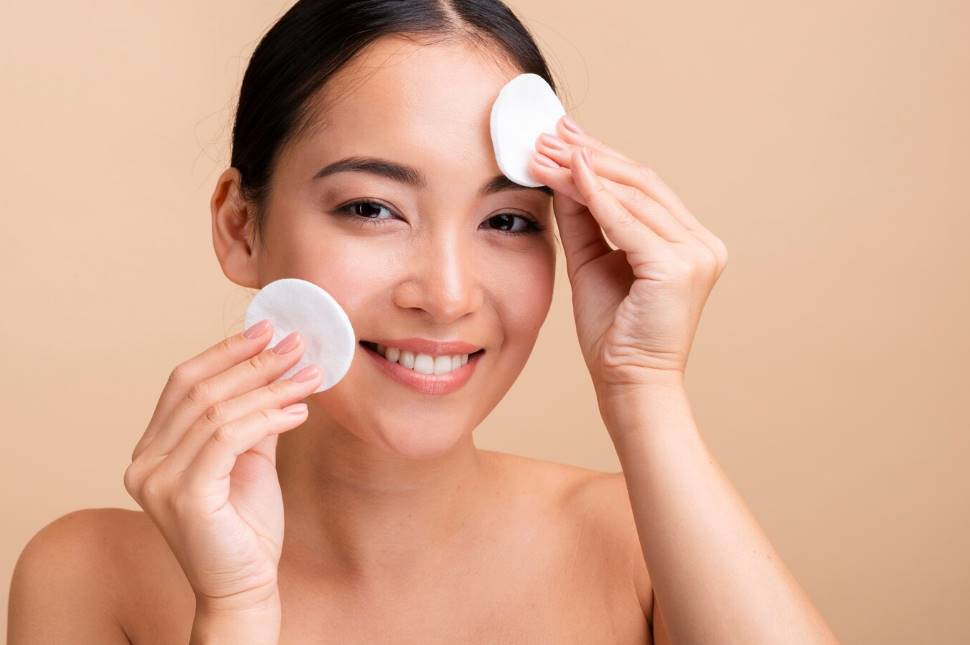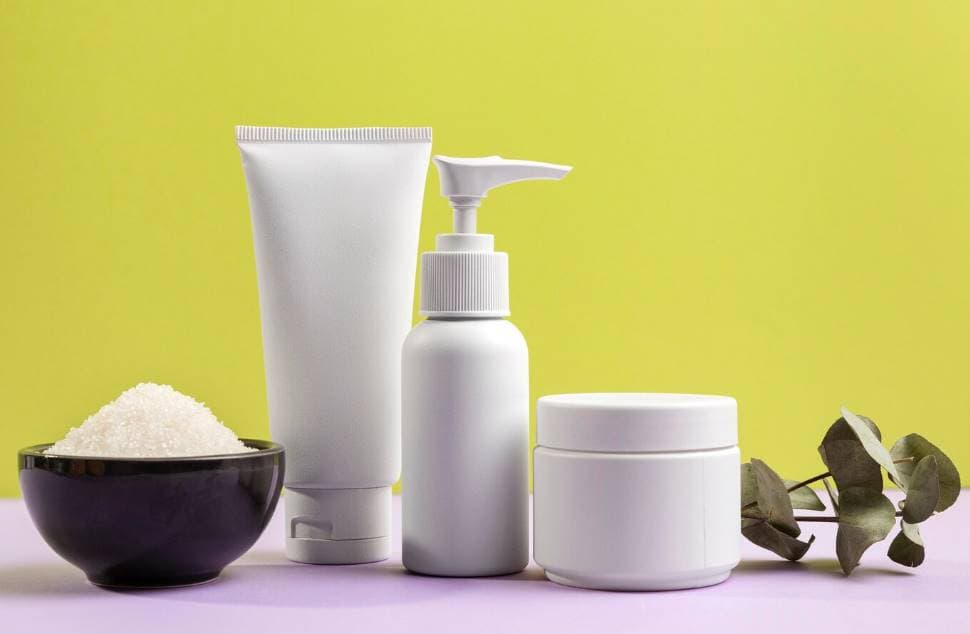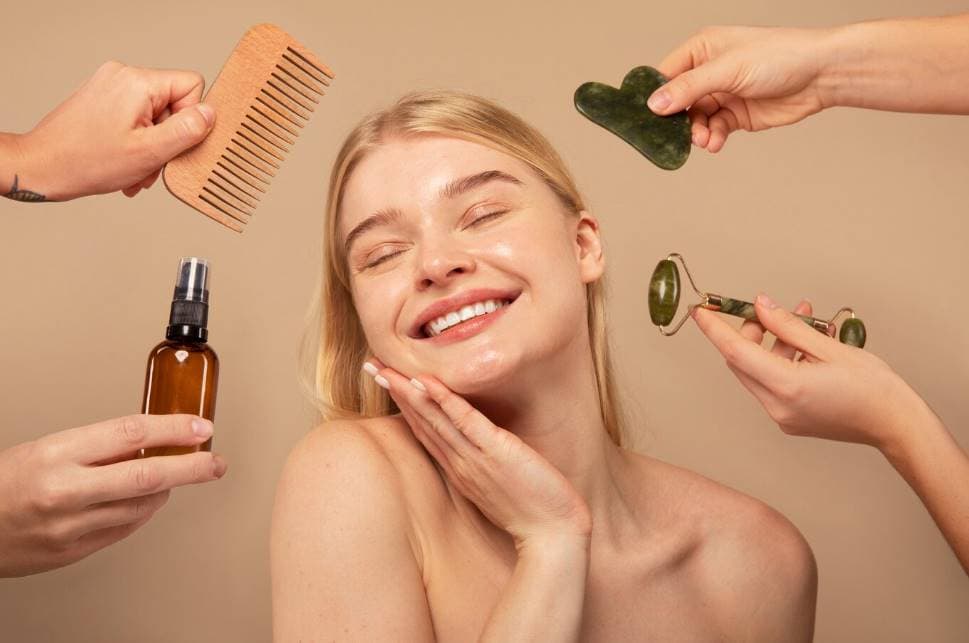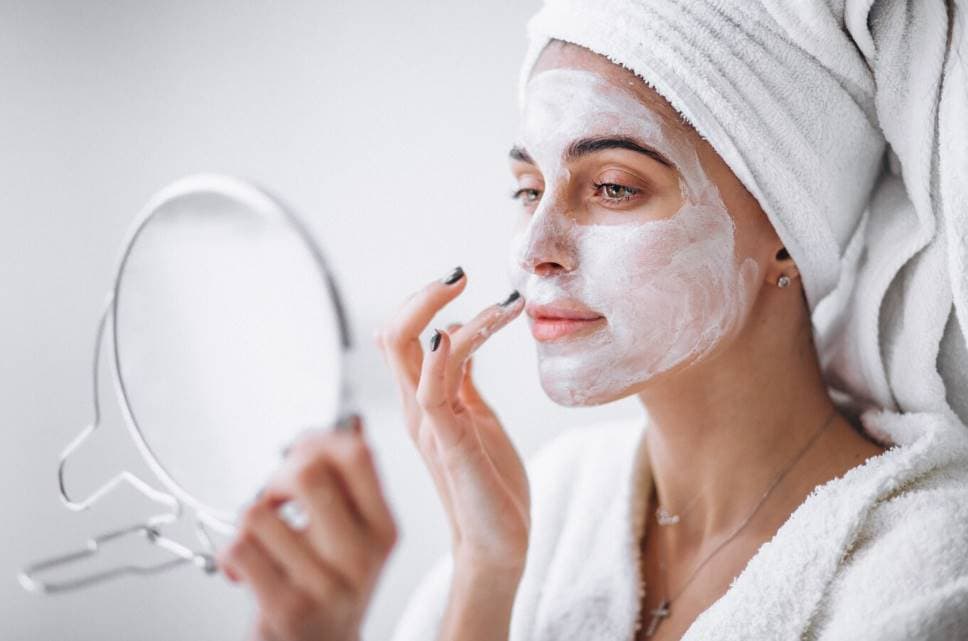Sunscreen is one of the most basic skincare products, but it must be addressed more frequently. Whether you're just starting with skincare or are a seasoned pro, knowing the value of sunscreen will help you keep your skin looking its best. In this primer, you'll learn skincare fundamentals, including why sunscreen is an absolute must.
This research into sun protection will aid anyone, from beach bums to city dwellers, in making educated decisions that will positively impact their skin's long-term health.
How Do You Know Which Sunscreen To Use?
How can you choose the best sunscreen when there is such a wide variety? Broad-spectrum sunscreens with SPF 15 or higher are preferable, but the best sunscreen is the one you use. Sunscreens have chemicals that actively block the sun's harmful UV rays.
Find out your choices so you may pick the one that works best for you. If you enjoy sunscreen, you'll be more likely to use it regularly.
How different sunscreens protect you is as follows:
- Sunscreens containing physical (mineral) components, such as titanium dioxide and zinc oxide, deflect and scatter UV rays before they reach the skin.
- Chemicals in sunscreen work like a sponge to soak up harmful UV rays before they may harm your skin.
Sunscreens contain only chemically produced active components. Physical sunscreens, which some may mistake for being more "organic" or "natural", are inorganic mineral compounds. Some sunscreens, commonly called "chemical" sunscreens, are "UV organic filters."
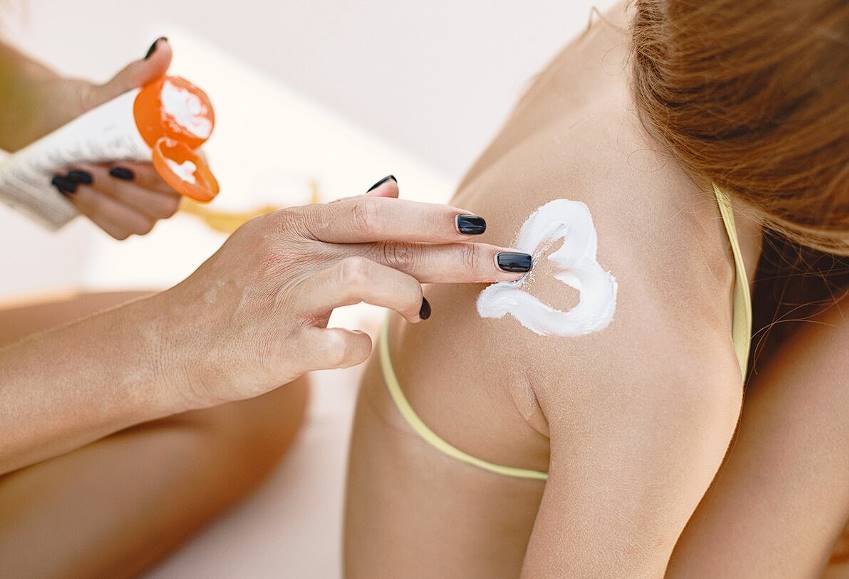
Where Can You Find the Best Sunscreen?
Daily sunscreen should be 30 SPF. Choose an SPF 60+ product if you plan to be outside. The truth is that most individuals need to apply sunscreen properly. Therefore, this greater SPF helps make up the difference.
Sunscreen labels used to solely include protection from UVB rays, which cause burns, and not UVA rays, which induce tanning and early ageing. Because of the widespread awareness of UVA risks, broad-spectrum sunscreens identify their SPF and UVA/UVB protection claims.
Who Needs to Wear Sunscreen?
Everyone, to put it briefly! Men, women, and children older than six months should regularly use sunscreen. Remember that sun damage occurs over time regardless of whether or not you burn, so this applies to people who can readily and those who don't.
Only infants less than six months have especially delicate skin. Protect infants from sunburn by keeping them indoors or in a covered area.
What to Look For When Buying Sunscreen
With so many options, selecting a sunscreen can be challenging. Even on overcast days, skin can be damaged by the sun. Therefore, sunblock with an SPF of 30 or greater is a must-have item.
Always use "broad spectrum" sunscreen after swimming or towel-drying. Contact one of our dermatologists qualified by the American Board of Dermatology for assistance.
Advice on Choosing a Sunscreen
- Protects against both long- and short-wave ultraviolet radiation (UVB and UVA).
- Sunscreen with an SPF of 15 is perfect for casual, everyday use, such as a walk with the dog or a commute to and from work.
- Long outdoor activities like running, hiking, swimming, and sports require sunscreen with an SPF of 30 or higher. SPF 30 is essential for outdoor employment.
- Swimmers and workout clothes that can withstand water. Sunscreens are not watertight; they all wear off after a while. The effectiveness of water-resistant sunscreens is measured after 40 minutes of swimming, whereas that of highly water-resistant sunscreens is measured after 80 minutes.
Should You Use Mineral Sunscreen Instead?
Chemical and mineral sunscreens are the two most common classifications. Chemical sunscreens include ingredients including octisalate, avobenzone, homosalate, and octocrylene. Sunscreens, whether chemical or mineral, accomplish the same thing (absorb UV rays and convert it to barely perceptible heat). There is some evidence that mineral sunscreens reflect some UV radiation.
Chemical sunscreens can irritate the skin. Mineral sunscreen may be preferable for those with sensitive skin or a history of product reactions. Mineral sunscreens can create an unattractive white cast, especially when applied to darker skin tones.
Otherwise, it's up to individual preference. You've found the perfect sunscreen if you use it religiously.
How many sunblocks Should You Use?
About an ounce of sunscreen covers your entire body, including the neck, face, legs, and arms. One ounce of sunscreen covers your palm when squeezed. You'll need roughly a half teaspoon to cover your face and neck.
One ounce, roughly a shot glass full, will provide adequate broad-spectrum protection for your entire body. Most people only use a fraction of the recommended amount, resulting in inadequate defence. Find out more. When applying sunscreen liberally and frequently throughout the day, a family of four will go through one four-ounce bottle per person.
Should Sunscreen Be Used First Or Last?
Sunscreen with at least 30 SPF, water resistance, and broad-spectrum should be used last, but the rest of your skincare regimen can be done in any order. Working without cosmetics or skin care products might be a refreshing change for some. Figure out what fits into your daily life the best.
When Does It Make Sense To Reapply Sunscreen?
Sunscreen should be applied at least 30 minutes before going outside so it has time to absorb the skin fully. Always reapply sunscreen after swimming or sweating heavily, and do so every two hours. You may not need to apply again if you have a desk job without any windows. However, you should limit the number of times you go outside. Keep an extra bottle of sunscreen in your office, just in case. A lunchtime stroll could harm your skin in more ways than one.
Even on gloomy days, the Earth receives about 80% of the sun's ultraviolet radiation. Skin damage can occur even on a gloomy day if you don't take precautions.
No sunscreen is 100% effective, so keep that in mind. Shade your eyes from the sun with a brimmed hat or sunglasses.
What is SPF?
A sunscreen's capacity to block harmful ultraviolet (UV) radiation from the sun, specifically UVB rays, is measured by its sun protection factor (SPF). UVB rays cause sunburns and cancer. Other forms of ultraviolet radiation include cancer-causing UVC and age-accelerating UVA rays, neither of which can penetrate Earth's atmosphere. Broad-spectrum sunscreens block UVB and UVA radiation.
The number represents the reduction in the time it takes for UV radiation from the sun to cause skin redness while using sunscreen as prescribed. If you use sunscreen with an SPF of 30, apply it appropriately, and you won't get sunburnt for 30 times as long as you would without sunscreen.
How Much SPF Do You Need?
If you spend most of the day indoors with brief sun exposure, wear sunscreen or makeup with SPF 15 or higher. A high-SPF, water-resistant sunscreen is essential if you spend significant time outside, especially during peak sun hours or in particularly exposed areas. Here's more info on SPF.
Reapplying sunscreen every two hours is recommended regardless of the SPF. It is also important to reapply sunscreen after swimming or sweating heavily.
Putting Sunblock in Your Makeup, Does It Work?
No amount of makeup, no matter how high the SPF, can protect your skin. Makeup with the specified SPF would require significantly more application than is generally necessary.
Sunscreen Options for Varied Skin Types
One-size-fits-all does not apply to skincare products. Choosing a sunscreen is just as dependent on your skin type as it is on your choice of cleansers and moisturisers.
The sunscreen industry has come a long way, baby. Now, products are available for people of all skin tones, so they may all get the sun protection they need without sacrificing their individual preferences. Let's investigate how to pick the best sunscreen for you based on your skin type.
Lightweight and non-comedogenic for oily skin
The battle to maintain open pores and manage sebum production is real for those with oily skin. The silver lining is that there are sunscreens created with you in mind. Look for products designated as "non-comedogenic" and lightweight. These sunscreens won't make your skin even oilier and won't cause annoying breakouts. Instead, they'll give you the necessary coverage while allowing your skin to breathe.
Sunscreens designed for oily skin typically come in the form of a gel or an oil-free lotion. They are easily absorbed and dry to a matte finish, so you can go out without worrying about looking oily.
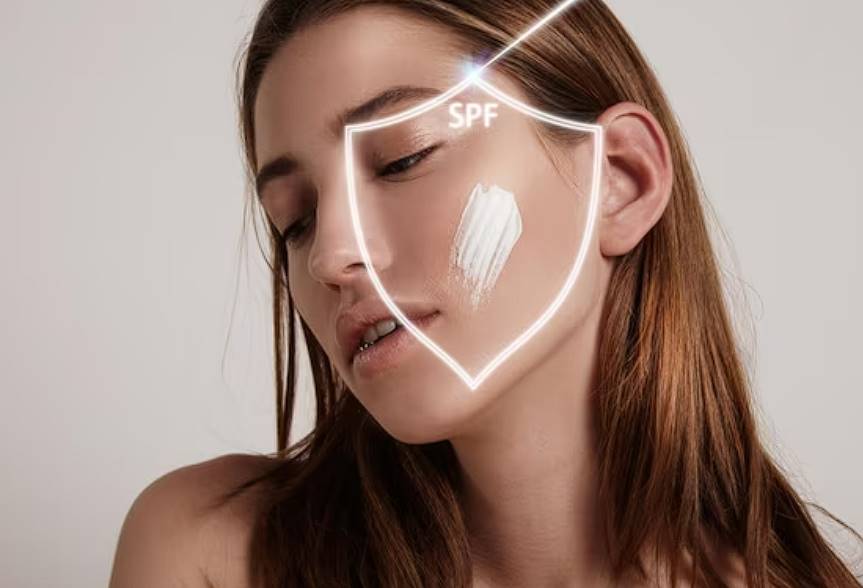
Nourishment and hydration for dry skin
Protecting oneself from the sun is important, but for people with dry skin, it's also a chance to give your skin some much-needed hydration. It would help if you used sunscreen that also contains a moisturiser. Hyaluronic acid, glycerine, and ceramides are common components of such formulations because of their ability to hydrate and retain moisture.
Finding a sunscreen that acts as a moisturiser is a great option if you want to streamline your skincare routine. Sunscreens for dry skin typically have a lotion-like consistency, so your skin can relax and feel good even in the sun.
Physical Barriers: Mild Defence for Sensitive Skin
Selecting a sunscreen also demands particular attention and care when dealing with sensitive skin. Physical blockers like zinc oxide or titanium dioxide reduce UV damage in sunscreens. In contrast to chemical sunscreens, physical blockers do not absorb UV radiation but act as a barrier on the skin's surface.
These blockers are ideal for sensitive skin because they are mild and won't aggravate existing conditions. They deflect and scatter the sun's rays, protecting your skin from damage. Keep an eye out for labels that say "dermatologist-tested" or "sensitive skin"v when searching for a new sunscreen. These will provide you with an extra layer of reassurance.
The Art of Balancing Combination Skin
Oily patches on dry or normal parts can challenge dealing with combination skin. The purpose of sunscreen selection is moderation. Choose a sunscreen that won't clog your pores and make your T-zone even oilier while moisturising your dry patches.
Sunscreens in a fluid or gel form are often well-suited for mixed skin because of their lightweight and airy structure. Be sure to apply sunscreen evenly throughout your entire face for the best results.
Conclusion
Sunscreen is an essential component of any beauty routine since it helps your skin retain its youthful appearance. It is crucial for everyone, from those who live in the city to those who visit the beach, to make educated decisions that have a beneficial impact on the long-term health of their skin.
Sunscreens are made up of a variety of components, including physical components such as titanium dioxide and zinc oxide, which prevent ultraviolet (UV) radiation from penetrating the skin by deflecting and scattering them.
Sunscreen contains chemicals that act like sponges, soaking up potentially damaging ultraviolet radiation from the sun before they may hurt your skin. Sunscreens that offer broad-spectrum protection and an SPF of 15 or greater are recommended, but the ideal sunscreen is one that you find most comfortable using.
Sunscreens should have at least 30 SPF on a regular basis, and at least 60 SPF should be used while going outside. Since the vast majority of people do not correctly apply sunscreen, having a higher SPF helps compensate for this shortcoming.
Sunscreens with a broad spectrum only protect against UVB rays, which are the ones that cause burns; UVA rays, on the other hand, cause tanning and accelerate the ageing process.
Sunscreens should provide protection against both long-wave and short-wave ultraviolet radiation (also known as UVB and UVA, respectively). The Sun Protection Factor (SPF) of 15 is ideal for casual, everyday use, while the SPF 30 level is required for extended outdoor activity. Sunscreens that are water-resistant do not completely seal out water, and their efficacy is typically evaluated after 40 minutes of swimming.
Chemical sunscreens and mineral sunscreens make up the vast majority of the market share. Mineral sunscreens may be better for people who have sensitive skin or a history of adverse reactions to other types of sunscreens. Chemical sunscreens work by absorbing UV radiation and converting them to heat that is scarcely perceptible. It is up to individual preference, but your specific requirements will determine which sunscreen is best for you to use.
When applying sunscreen, it is essential to select a product that is suited to both your skin type and the way you live your life.
Reapplying sunscreen on a regular basis is vital for maintaining healthy skin since it allows the product to be properly absorbed by the skin and protects it from sun damage. Sunscreens that protect against a wide range of wavelengths of ultraviolet (UV) radiation, including the cancer- and sunburn-causing UVB rays, are called broad-spectrum.
People who spend the majority of their day indoors and only spend a short amount of time outside should use a sunscreen with a high UV protection factor and water resistance. Regardless of the sun protection factor (SPF), it is suggested that sunscreen be reapplied every two hours.
There is a wide variety of sunscreen available to accommodate a variety of skin types, including non-comedogenic and lightweight formulations for oily skin, formulations that nourish and hydrate dry skin, and physical barriers for sensitive skin.
Physical blockers, such as zinc oxide or titanium dioxide, protect the skin from further damage caused by ultraviolet light by acting as a barrier on its surface. Because they are gentle and do not make preexisting issues worse, these blockers are an excellent choice for those with sensitive skin.
When selecting a sunscreen, it is essential to find one that strikes a balance between oily and dry or normal areas. Pick a sunscreen that won't clog your pores, one that will moisturise dry areas, and one that will keep your complexion even while doing so. Because of their low weight and airy composition, sunscreens that come in fluid or gel form are ideal for mixed skin types. For optimal protection, apply sunscreen uniformly throughout the entirety of the face.
Content Summary
- Sunscreen is an essential component of a skincare routine and is very necessary for the preservation of healthy skin.
- This blog stresses the importance of using sunscreen, not just for those who are new to skincare but also for those who are more experienced.
- The significance of wearing sun protection is brought to light with reference to a variety of lifestyles and settings.
- It is crucial to choose the appropriate sunscreen; it is recommended to use a broad-spectrum sunscreen with an SPF of 15 or higher.
- Both physical and chemical sunscreens block ultraviolet rays, but in distinct ways.
- It is less crucial which sort of sunscreen you use as much as it is to use it consistently and effectively.
- Sunscreen should have a minimum SPF of 30 for everyday use and a minimum SPF of 60 or more for extended exposure to the sun.
- As a result of greater awareness, the labels on sunscreen now include claims regarding its protection against UVA and UVB.
- Sunscreen should be worn often by all members of society, including men, women, and children.
- Infants younger than six months old have more sensitive skin and require extra attention and care.
- When engaging in activities outside, it is advised to use sun protection of at least SPF 30.
- Sunscreens that are water resistant typically require reapplication after swimming or heavy perspiration.
- Your personal preference and how sensitive your skin is will determine whether you choose with a chemical or mineral sunscreen.
- It takes about an ounce of sunscreen to cover the entire body, therefore quantity of application is important.
- The final step in proper skincare is the use of a broad-spectrum sunscreen with at least 30 SPF.
- Applying sunscreen at least half an hour before going outside is recommended, and it should be reapplied after swimming.
- Even on cloudy days, sun damage can occur; therefore, protection is required.
- The sun protection factor, or SPF, is a measurement of how well a sunscreen blocks UV rays.
- The degree of sun exposure and the type of skin both have a role in determining the ideal SPF.
- Makeup containing an SPF is not an adequate method of sun protection.
- There are numerous formulations of sunscreen available to accommodate a variety of skin types, including oily, dry, sensitive, and combination skin.
- Sunscreens that are non-comedogenic and lightweight are the types that are advised for oily skin.
- Sunscreens that contain moisturising elements are beneficial to people with dry skin.
- Physical blockers, like as zinc oxide or titanium dioxide, can be beneficial to the treatment of sensitive skin.
- When you have combination skin, you need to apply sunscreen evenly to all of your skin's distinct parts.
- Because of their lightweight nature, sunscreens in fluid or gel form work particularly well for mixture skin.
Frequently Asked Questions
After moisturiser, sunscreen should be applied as the final step in your morning skincare routine. Use a broad-spectrum sunscreen with at least SPF 30 and reapply every 2 hours outdoors.
Yes, many sunscreens are formulated to be worn under makeup. You can find sunscreens designed to work well as a base for makeup application.
Yes, there are physical (mineral) sunscreens and chemical sunscreens. Physical sunscreens contain minerals like zinc oxide or titanium dioxide on the skin's surface and reflect UV rays. Chemical sunscreens absorb UV rays and transform them into heat released from the skin.
Regular and proper use of sunscreen and other sun protection measures can significantly reduce the risk of skin cancer caused by UV radiation exposure.
Water-resistant sunscreens can offer protection while swimming or sweating but must be reapplied after a certain period. Always check the label for specific instructions on reapplication while in water or after sweating.
